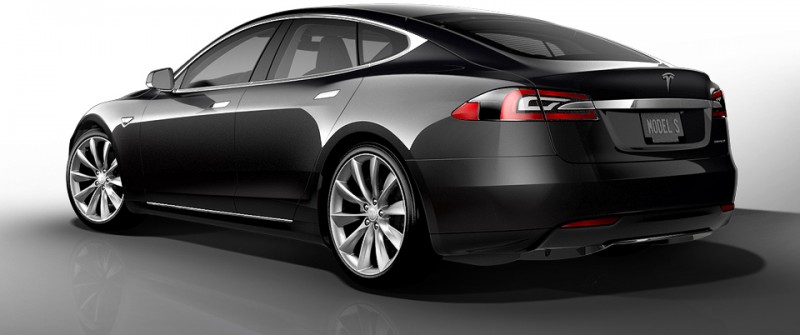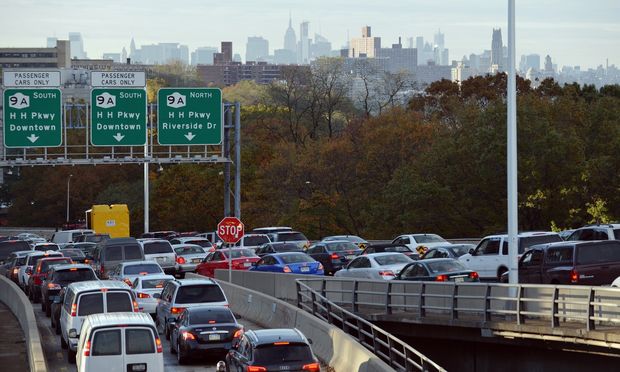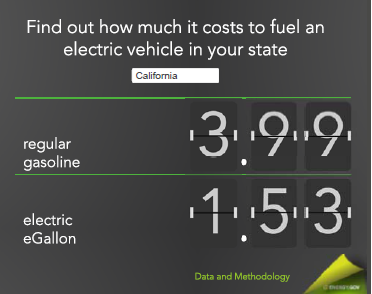Ahh, how the petty world of politics doth make fools of us all. It is not enough that Elon Musk is trying to start a new car company in a market segment ruled by massive multinationals. He is ratcheting up the risk level by taking on a great deal of technology risk as well. And in the process, he is doing tremendous legwork for future producers to get an electric drive train working well, and also to create an electric vehicle that onlookers envy rather than mock.
Trouble with the batteries? No problem. Just build a massive, multi-billion dollar factory (though maybe they can still change the name from "Giga Factory" to something a bit catchier...) to make lithium batteries at a scale that can bring costs down both through high volume production and through incremental learning and technical improvement. And if you happen to have large volume production of these batteries while also being Chairman of a large solar panel leasing firm (Musk started Solar City), why not use some of those batteries to help the PV sites store power? It's at least a twofer: the storage helps better match onsite production with onsite consumption, and can also enable PV producers to sell stored power back to the grid during periods of higher value. The expensive panels are being leased anyway; adding a few battery packs won't make it markedly more complex. And if you upend the utility industry by boosting the ability of self-generated power to substitute for grid-supplied juice, all the better.

Let's give the guy credit. Elon Musk is taking on the economies of scale for both electric vehicle and battery production -- high risk endeavors that, against huge odds, he may actually succeed at. And Solar City isn't exactly low risk either.
So Governor Christie ought to be out there thanking the guy for the work he's doing, knowing that the road to success remains long and hard, but nonetheless admiring Musk's role as an outsider taking on the power structure to build a better society. That is, after all, what Christie himself did back in 2009.
If you add enough fixed costs, maybe even Elon will drown
Alas, Christie took the vested path instead.
His appointees issued a regulatory ruling to block direct Tesla sales in NJ without at least letting the issue be argued in court. The effect is to lump on another layer of large fixed costs to roll out the vehicle -- adding the sales network to the already high risk areas of vehicle and battery manufacture.
Selling too few cars to support a dealer network like GM can? Too bad: Governor Chris says you need an independent network anyway. Who cares if your product directly competes with the vehicles they are making most of their money on and might generate a conflict of interest. Selling an idea as well as a car, and need a specially trained staff? No problem: the existing dealers can do it. People will flock to them to chat and learn: after all, bartering for a vehicle is one of most people's favorite activities and car salepeople among their favorite teachers. High level of training needed to explain the new technology and the complex financing approach? Again, somebody in that independent dealer network could learn to be that trusted communicator. They may have to: the independent dealer networks receive regulatory protection from direct sales of automobiles in at least 48 states and dealerships with protected franchises that date back 99 years in some cases. (Dan Crane did a nice write-up on the history of these market protections last year.)
Does it all tie back to the bridge?
Let's give Christie a break. Maybe the decision to restrict direct sales in NJ really isn't about politics. Maybe Chris Christie is just worried about the well-being of New Jersey residents, and felt that the charging station issue -- you know, range anxiety -- required him to act. Christie knows that sometimes drivers in his state get tied up in massive traffic jams on the George Washington Bridge near Fort Lee. Who knows when this will happen again? Or where? It's not as though the GW Bridge is the only possible site: other places yet-to-be named could also experience one of Chris' trade mark "FLASH JAMS".
So he is worried. He is worried that people driving Tesla's on that bridge (or location to-be-named later) could suddenly find themselves not moving for hours. And they would run out of power. And be stranded, maybe forever (who knows -- Governors need to think about worst case scenarios). To ensure this doesn't happen, maybe Christie is looking out for the little guy here to make sure Granny isn't left toothless on the bridge, and with no food or water or place to plug in.
Well, this could be what is happening, couldn't it? Quick: somebody check the e-mails. They keep finding new information. Has anybody searched "Tesla" yet?
Gecko power
Hey, if it does turn out to be just routine political pandering, what is Tesla to do? After all, vehicle sales aren't the only industry to be hamstrung by old regulations that protect incumbents against new ways to provide the same good or service cheaper, faster, or better. Taxi-cabs are another great example. They are often licensed at the town, city, or county level, rather than the State. Those licenses (medallions) can be worth hundreds of thousands of dollars each (and more than $1 million in NYC) -- a good proxy for the value of the operating monopoly. And as a result we have the rather bizarre outcome in which many suburban cabs drop customers off at the airports and leave empty while city cabs leave the airports full and come back from surrounding towns empty. Both practices burn a ton of extra gas (and a ton of driver time). Yet at the same time, we see growing regulations forcing cab companies to buy energy-efficient and more expensive "clean" cab fleets to reduce their climate and air pollution imp act.
act.
Market changes that affect entrenched industries or marketing arrangements often trigger fierce political battles. Following the NJ ruling, Tesla's initial strategy is one of bypass, directing customers to check out showrooms in NY and PA. But longer-term, Tesla should be looking for allies to help overturn restrictions on direct sales of automobiles. The ideal candidate would be somebody in a related industry that has also faced challenges in being able to direct sell; who has enough clout and power to just perhaps get the rules rewritten; and who might see profits rise if the luxury Tesla vehicle starts to sell in larger numbers. Any suggestions?




 act.
act.
